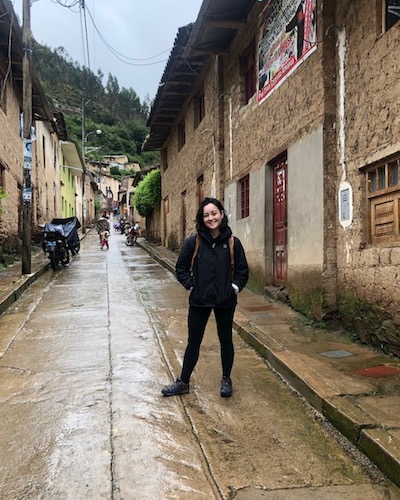HBA Sustainability Certificate
Empowering the next generation of sustainable leaders
My name is Indigo Baylis and I am an Ivey HBA student obtaining a concurrent BSc degree majoring in Medical Sciences. With a passion for healthcare, environmental and social responsibility, I want to change the world’s perception that capitalism is incompatible with the conservation of nature and marginalized groups. With the skills and knowledge, I will acquire through the Ivey Sustainability Certificate, I want to learn how to promote and integrate environmental, social and governance-related efforts into standard business practices.
What is your personal definition of sustainability?
My definition of sustainability is the reciprocal relationship between human activity and earth’s capacity to sustain life. This also extends beyond the physical and chemical state of the earth but the activities that affect environmentally vulnerable groups such as indigenous people, populations living at or below sea level and groups with low accessibility to freshwater. Companies, organizations and individuals who practice sustainability are aware of the environmental and social impact of human activity and seek to reverse the damage of climate change.
What role do you see sustainability playing in your professional career?
With the rapid deterioration of the earth due to human activity, every business and organization should have a vested interest in sustainability efforts. This past year, I completed a case in the HBA1 financial fundamentals course where we studied Danone’s accounting policy which fostered my interest in businesses’ ability to integrate environmental, social and governance (ESG)-related work into management policies. Danone has spent several years trying to integrate metrics that reflect their financial success and ESG work to provide shareholders with a holistic view of their business practices. Moreover, they have collaborated with external organizations to create similar accounting policies for other firms. This case study spurred my interest in business and sustainability as it demonstrated how firms could look beyond the “bottom-line” and incentivize ESG initiatives. Through my professional career, I want to make similar changes to management policies and work to incentivize ESG efforts in corporations.
What sustainability projects have you been engaged in?
Although I haven’t been involved in many environmentally sustainable projects, I have been involved in various social impact projects and I’m excited to explore environmentally sustainable issues and initiatives.
For the last three years, I was an executive member of The Abolition Project Against Human Trafficking (TAPAHT), a USC-certified club dedicated to raising awareness on human trafficking. Through my involvement with TAPAHT, I learned of the growing crisis facing Indigenous communities as Indigenous women and girls are the greatest targets for human trafficking in Canada. Moreover, last spring I travelled to a remote, indigenous community in Peru, where I helped to run a sports leadership program for the primary school children of the community. Although Peruvian Indigenous people face different issues than Canadian groups, the trip demonstrated the institutional challenges facing these groups with respect to language and culture. Following these two experiences, I applied to work on the Impact Consulting Project and was selected to help the Nokee Kwe London Employment & Education Centre, which seeks to help indigenous and non-indigenous people through various community initiatives.
Indigo Baylis
